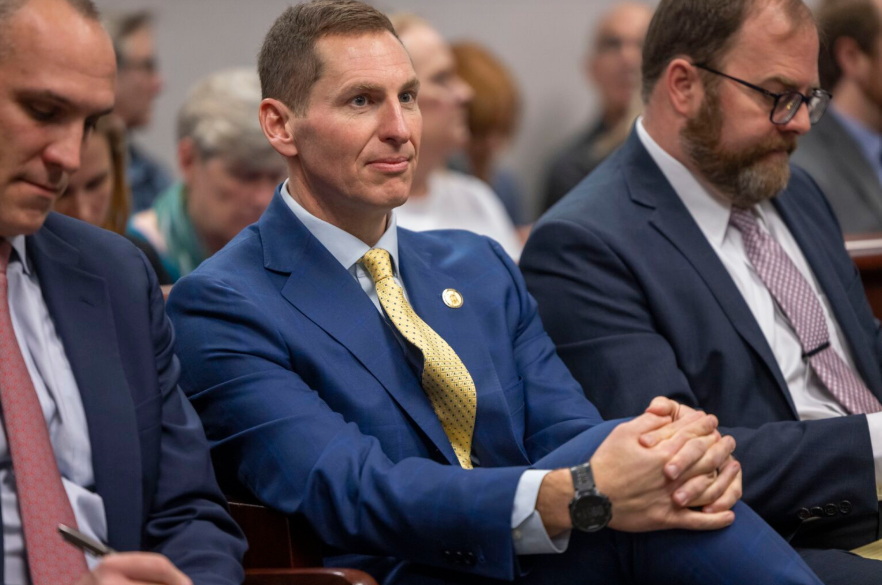The North Carolina Court of Appeals convened on Friday to hear oral arguments in Republican candidate Jefferson Griffin’s legal challenge to the results of the state Supreme Court election, an effort that could potentially disenfranchise approximately 65,000 voters.
Griffin, a sitting appeals court judge, lost the November election to incumbent Justice Allison Riggs (D) by 734 votes. Despite two recounts confirming Riggs’ victory, Griffin has refused to concede. Instead, he is contesting the North Carolina State Board of Elections’ (NCSBE) decision to count tens of thousands of ballots that he claims were improperly cast due to voter registration errors.
At the center of Griffin’s lawsuit are ballots submitted by voters with allegedly incomplete registrations—many of whom were overseas and military personnel. These voters were informed that they were not required to provide photo identification to vote. However, Griffin’s legal team argues that this guidance was incorrect and that ballots cast without proper ID should be disqualified retroactively.
Attorney Craig Schauer, representing Griffin, contended that accepting such ballots could compromise election integrity. “The right to vote is not absolute,” he asserted, citing legal precedent that allows states to regulate election processes to prevent potential fraud.
In contrast, Nicholas Brod, an attorney for the NCSBE, emphasized that voters should not be penalized for procedural missteps by election officials. “From the voters’ perspective, they did everything they were asked to do in order to cast a ballot,” Brod stated, referencing established state Supreme Court rulings that protect voters from disenfranchisement due to administrative errors.
Raymond Bennett, representing Justice Riggs, reinforced this argument, invoking longstanding legal principles. “For more than 200 years, elections have proceeded under a basic rule understood by all: You cannot change the rules after the game has been played,” he said. “If you lose, you accept defeat graciously.”
The case is being considered by a three-judge appellate panel with a Republican majority. The judges provided no clear indication of how they may rule. Meanwhile, a bipartisan coalition of more than 200 North Carolina legal professionals—including judges, attorneys, and government officials—has urged Griffin to withdraw his lawsuit and accept the election outcome.
Griffin’s legal battle has delayed the official certification of the election for over four months. Efforts by the NCSBE to transfer the case to federal court were rebuffed by the 4th U.S. Circuit Court of Appeals, which ruled that state courts should handle the dispute. However, the appellate court left open the possibility of future federal intervention should unresolved federal legal issues arise.
Griffin’s challenge is not the only Republican-led attempt to overturn the election results. The Republican National Committee has filed a concurrent lawsuit seeking to discard thousands of ballots on similar grounds. Proceedings in that case remain paused pending the outcome of Griffin’s appeal.
The Court of Appeals’ ruling will determine whether Griffin’s legal effort moves forward or if the election results will be upheld, bringing an end to a months-long legal standoff that has cast uncertainty over North Carolina’s judicial system.



